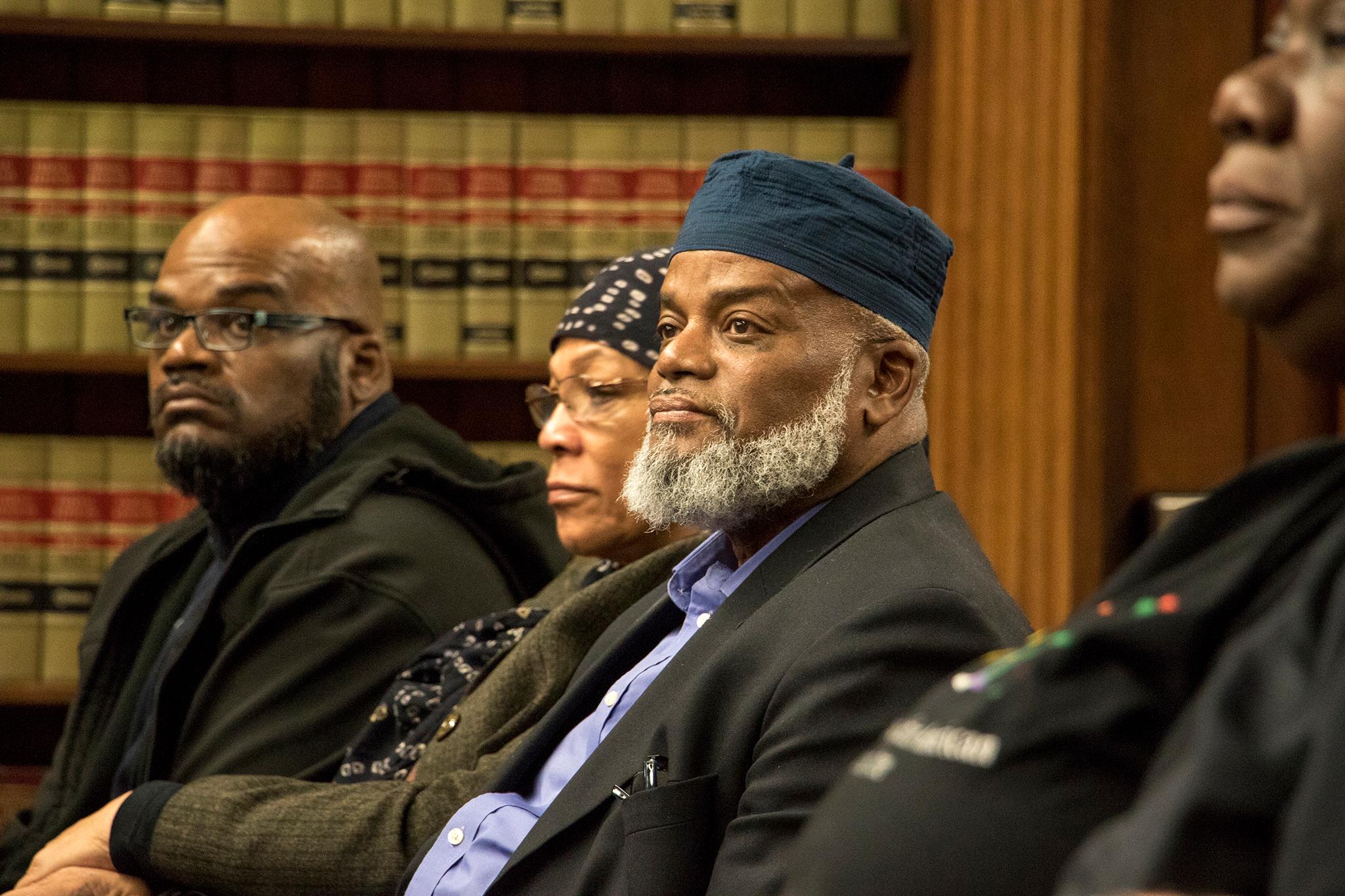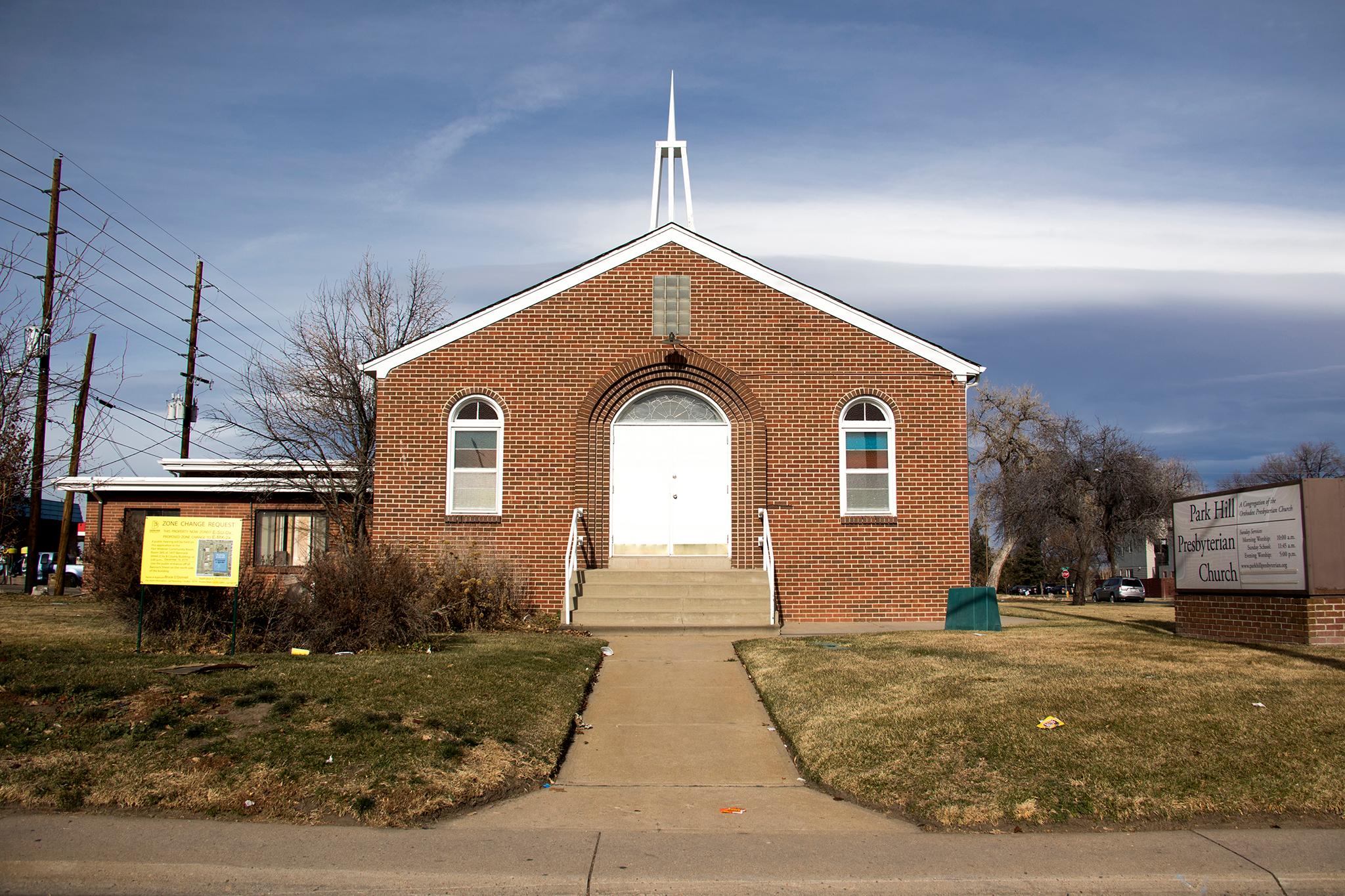The owner of Park Hill Orthodox Presbyterian Church wants to sell his land to a developer interested in putting down 22 townhomes. Neighbors don't want them. Well, they're sort of fine with them if enough of the homes get priced "affordably." That would mean less profit for the developer and more diverse housing in a city that needs it.
Lather, rinse, repeat.
The same scenario plays out all the time in Denver. Property owners want to sell their land, but that land comes with rules -- no apartments allowed, for example, or in this case, public institutions and single-family homes only. Property owners apply with the city to change those rules and a "rezoning" fight is born.
Imam Abdur-Rahim Ali is one person at the center of this fight at 3411 Albion St. More accurately, he's across the street at the Northeast Denver Islamic Center, a mosque and community hub.
"This is not about the community," Ali said in an interview, "this is about land-grabbing and making money."

Ali wants to see useful things like daycare, a dry cleaner, or retail included in the project, he told Denverite. If not, he at least wants to see five of 22 homes priced at $200,000 or less -- not up to $500,000 a piece.
According to Bruce O'Donnell, who represents the developer, Mile High Construction and Development committed to build three town homes attainable by households making 80 percent of the median income, or about $72,000 for a family of four.
The city doesn't require Mile High to build any homes for lower income residents. Denver would require the developer to pitch in $65,000 for the city's affordable housing fund -- but that's moot because Mile High committed to building attainable homes on site. By the city's formula, the 45,000 square-foot property would demand just one below-market home.
"I think it's important for people to understand that it's going way beyond what would be required of any developer of any project of this size," he said.
There's another twist: The church will fold if it doesn't sell.
The developer will only buy the property if council members OK a zoning change. If the church doesn't sell, the church won't exist, according to Reverend Matthew Kingsbury.
Orthodox Presbyterians practice a conservative theology with a relatively small following, and it's dwindled even more over the years, the reverend said. No one in Park Hill attends his church, and Kingsbury wants to move the congregation to Aurora where it's cheaper and closer to his flock.
He has a little less than one year to sell before his parish folds.
"In order for the land to be worth what it would be worth... it needs to be zoned for a higher density," Kingsbury said.
Ali isn't worried about density -- similar townhomes already sit on the same block. He's worried about displacement caused by gentrification and a development that doesn't serve the larger neighborhood.
"You have some drug problems in that area and in order to combat that, you need to have programs that will address that issue," Ali said. "The concern is affordability. It's just another way of gentrification and running the people who have been here a long time. Maybe this can be a win-win for both of us if we can have some affordable housing and some market-rate."
Ali is interested in buying the property, but has not made an offer, according to Kingsbury.
This neighborhood fight mirrors a recent one in Hilltop. Will the result be different?
Hilltop residents fought -- and won -- against a similar rule change in their neighborhood by appealing to traffic, parking and privacy fears. Some claimed the 23 similarly priced condos proposed would not be affordable enough (they would have been moderately priced for the area).
Some simply did not want to see the block, which already contained condos, townhomes and two food establishments, changed. Others said new condos belonged down the street, not in their backyard.
Also: Both neighborhood opposition groups expressed distrust in the process and both entered mediation because of it. Those meetings resulted in concessions from developers (fewer homes in the case of Hilltop, three affordable homes in the case of Park Hill).
Denver's planning department typically guides owners seeking a rezoning through the complex process. But Blair Taylor, a member of the Greater Park Hill Community neighborhood group and candidate for city council, thinks that's unfair.
"It's representative of the fact that the city helps developers when proposing development, but we're not given the same advocacy," she said.
Denver Planning Board, which is comprised wholly of volunteer residents, recommended city council approve new rules on Albion St.
In the end it's up to city council members. City Councilman Chris Herndon cannot take a position.
Herndon represents the area but did not take sides, citing the ongoing mediation. It is illegal for a city council member to choose sides on the quasi-judicial matter, a spokesperson from his office said. We will know where he stands February 25 at the city council's legislative meeting, where he and his colleagues will vote following a public hearing.
Opponents of the project plan to petition for a "super majority." If enough nearby residents sign it, new rules would require a yes vote from 10 members present at the meeting.
That super majority is how Hilltop residents beat the rezoning last month, and beat 23 new homes across three parcels.














